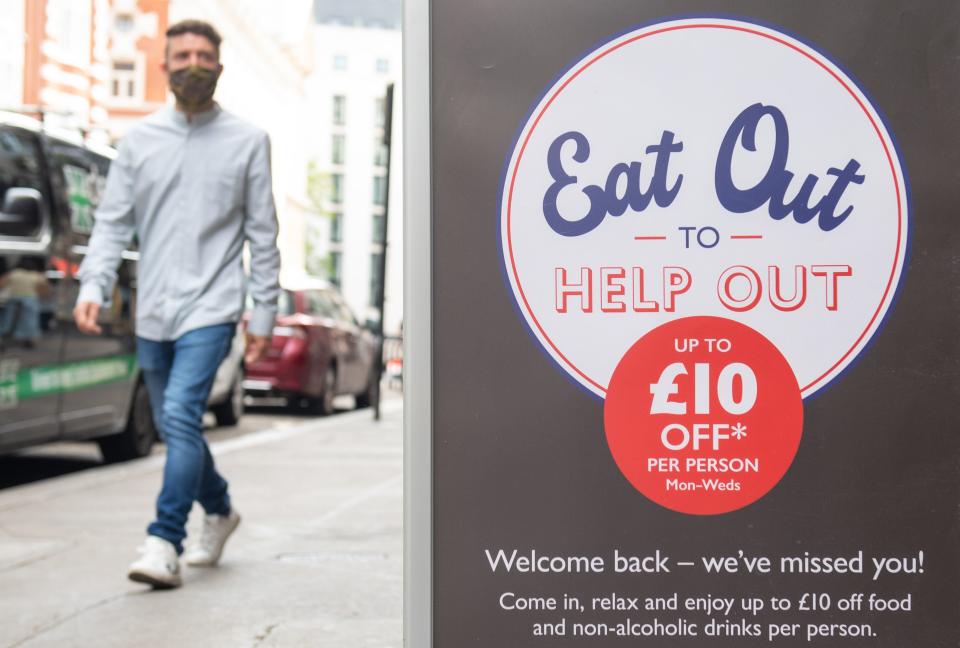‘Eat Out to Help Out’ accelerated second wave of coronavirus in UK, study says

The scheme subsidised around 100m meals over August
(PA)The UK government’s Eat Out to Help Out scheme caused a "significant" increase in new coronavirus cases, a new study has found, and contributed to the “acceleration” of the pandemic.
The University of Warwick research suggests that the government scheme may be responsible for eight to 17 per cent of newly detected Covid-19 clusters in August and early September.
The programme, spearheaded by the chancellor, Rishi Sunak, subsidised restaurants and pubs to offer discounted meals on Monday, Tuesday and Wednesday in August.
The scheme, which gave diners up to 50 per cent off their bill, was intended to help the economy after the lockdown which saw hospitality venues shuttered.
The associate professor behind the study, Dr Thiemo Fetzer, said the Eat Out to Help Out initiative “shortened the time between the UK’s first and second coronavirus waves”.
The economist told The Independent: “Many restaurants enjoyed a good August, but they won’t enjoy a good autumn because as infections rise, people are less likely to eat out and obviously any lockdown will make things even worse for the restaurant sector.
“The acceleration of the pandemic, that requires more aggressive measures like a lockdown, is the result of policy failures — including not having an effective test and trace system in place that would allow businesses to safely operate.
“It’s a consequence of very shortsighted policies that generate nice headlines, as the Eat Out to Help Out scheme did over the summer.”
Dr Fetzer underlined: "Ultimately, by accelerating the pandemic, it was a false economy.”
The paper shows that areas with higher uptake of the subsidised restaurant scheme saw infections “steadily” increase about one week after the initiative began, and decline after it had ended.
The study’s publication follows Boris Johnson admitting earlier this month that the government initiative may have exacerbated the rise in Covid-19 cases seen across the UK in recent months.
“It was very important to keep those jobs going,” he told the BBC. “Insofar as that scheme may have helped to spread the virus, then obviously we need to counteract that and we need to counteract that with the discipline and the measures that we're proposing.”
However, Mr Sunak said soon after that did not regret launching the programme.
“No, no, no, no, definitely not,” he told The Sun. “We had an industry that I care deeply about because of employment. It’s over two million people.”
A Treasury spokesperson said: “We do not recognise these figures — which, as the study itself admits, are ‘back-of-the-envelope’ calculations.
“Many other European counterparts have experienced an uptick in cases — irrespective of whether similar measures for the hospitality industry have been introduced.
“We’re continuing to work closely with businesses to help them be Covid-secure.”
The state subsidised around 100m meals during August.
Read more
UK economic recovery slows down in August
Inside Politics: Sunak clashes with Johnson over Eat Out to Help Out
Inflation rises as Rishi Sunak’s Eat Out to Help Out scheme ends
100 million meals sold through Eat Out to Help Out
Papa John’s investigating £250,000 Eat Out to Help Out fraud claims

 Yahoo News
Yahoo News 